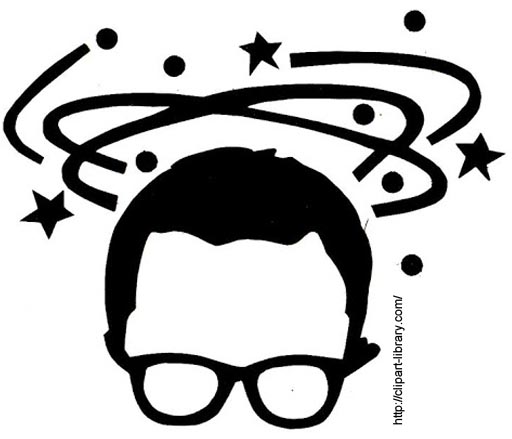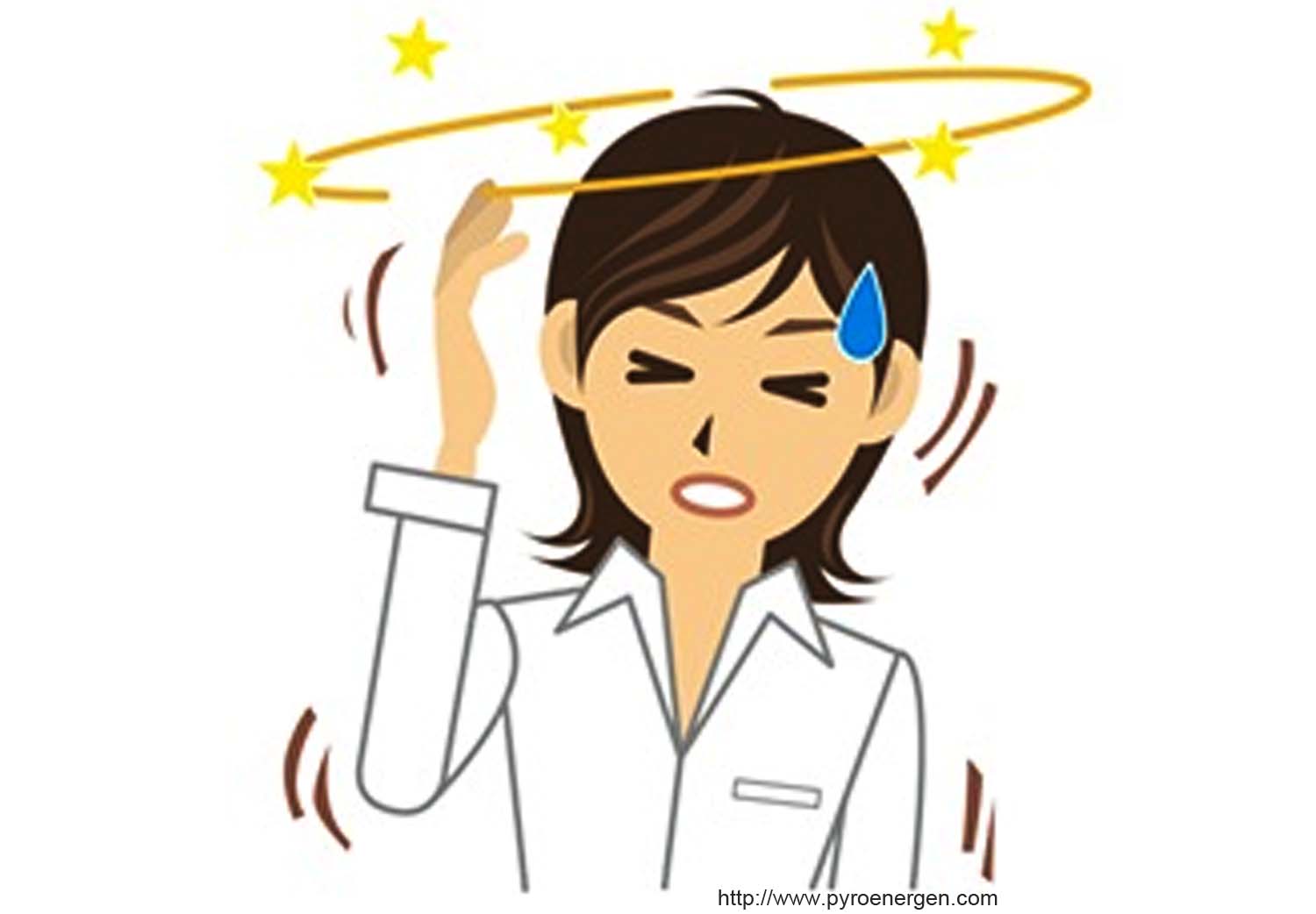Everyone feels dizzy sometimes. It covers the range from mild unsteadiness to severe vertigo, when you feel the environment is spinning.
There are different causes of dizziness. Most are harmless, but others can be serious. Less serious causes include:
- Eye problems. If you have blurred vision, astigmatism or other eye problems, you can get dizzy while reading. Have your eyes checked by an optometrist or ophthalmologist and get some eyeglasses. If you are working on a computer for a long time, you may also get dizzy. Rest your eyes and look at a distant object every 10 minutes or so.
- Anxiety or nervousness. Nervous people often say they feel dizzy. This is like a panic attack. If you feel an attack coming, all you have to do is stop what you are doing and rest. Doctors may prescribe a sedative.
- Hunger. Dizziness can be caused by hunger and low blood sugar. Take some bread, juice or a banana to keep your blood sugar up.
- Temperature change. Going to an air-conditioned room after being out in the sun can cause headache and dizziness.
- Motion sickness. Swaying movements from airplane, boat and car rides can cause dizziness.
- Lack of oxygen. Some people get dizzy and may even pass out in crowded areas like a church or rally. Give the person some room and bring him to a well-ventilated area.
- Inner-ear problems. This is the most common cause of vertigo. Our inner ear has a vestibular system, which controls our balance. If you have a cold or flu, this organ can become inflamed, causing severe dizziness lasting for weeks (called labyrinthitis).

Moreover, any sudden change in the head’s position can cause crystals in the ear to break loose and cause dizziness. This is called Benign Positional Vertigo. Consult an ear, nose, and throat doctor to be sure. In the meantime, check out the advice below for reducing dizziness.
18 tips to reduce dizziness
- If you feel dizzy, try to hold a steady object beside you. When you are standing up, the brain can get mixed messages regarding your balance. Holding on to a firm object, like a chair, table or wall, can help the brain refocus and regain its balance.
- Get up slowly from bed. When you wake up in the morning, be sure to give yourself a minute or two to become oriented. Be sure your arms and feet are “awake” already and not numb. Shake your hands and legs to get the blood circulating back to your limbs. Sit up for a while before attempting to stand.
- If you feel a severe attack of dizziness coming, sit down for a while and do not move. By staying steady, you may limit the severity of the dizziness.
- For mild dizziness, you may continue with your regular routine. Go on your walks and perform light exercise. It is important to maintain your body’s muscle strength to keep your balance.
- Wear flat shoes or rubber shoes. Avoid wearing high heels because there is too little contact between heel and floor, causing you to feel unsteady. Flat rubber-soled shoes are best for walking. It is good for your knees and feet, too.
- Keep a flashlight handy. When walking at night, be sure there is enough lighting in the area. At night, you may like to keep a nightlight on just in case you need to go to the bathroom. A dim environment can confuse your brain and make you feel off balance.
- Avoid walking on carpets or soft ground. Thick carpets make it difficult for the brain to assess its balance.
- Make your home accident-proof. Install handles in the bathroom, and place a rubber mat in the shower area. Most accidents occur in the bathroom area.
- Decrease your salt intake. Lessening the amount of salty foods eaten will also reduce the amount of fluid retained in the body. Too much fluid leads to feet swelling, and inner-ear swelling, which can cause dizziness.
- Avoid alcoholic drinks. Dizziness and alcohol intoxication are the worst combination. It is an accident waiting to happen.
- Consider taking anti-dizziness medicine.
- Drink a ginger mixture (salabat) as a natural remedy. Combine ginger, honey and warm water. This is a very effective treatment for dizziness. In fact, studies show that ginger solutions are as effective as drugs.
- Avoid texting while walking. A patient of mine was busy texting on his way down the stairs. Well, when he woke up, he was already in the MRI room of a hospital. The patient fell and lost consciousness. Luckily, he survived with just a broken elbow.
- Drink eight to 12 glasses of water. Being dehydrated can cause your blood pressure to drop, causing dizziness.
- Sleep seven to eight hours a day. Lack of sleep is a common cause of unsteadiness during the day.
- Limit stress and relax. A nervous person often feels dizzy for no reason. Try to relax by taking slow, deep breaths several times during the day. Try to pretend you are in a peaceful environment.
- Pinch the skin between your eyebrows. This technique sometimes works for dizziness and headaches. This skin area is a known acupressure point.
- Check your medicine. Some, like aspirin, blood pressure and diabetes drugs, may sometimes cause dizziness. Ask your doctor about it.
When should you consult a doctor?
Sometimes dizziness can have a serious cause. If your blood pressure is higher than 140/90, you can become dizzy and experience nape pains. If your blood pressure is too low, less than 90/60, this is likewise a dangerous cause of dizziness. See a doctor immediately.
If you have irregular heartbeat, weakness, numbness or severe headaches, consult a doctor. Strokes and brain tumors can also cause dizziness.
Learn more about dizziness, and you’ll be better prepared to handle them in the future. — First published in Tulay Fortnightly, Chinese-Filipino Digest 28, no. 1-2 (June 16-July 6, 2015): 12.
